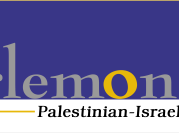




Secretary of State Rogers, addressing an Adult Education Conference in Washington
December 9, 1969
Following the third Arab-Israeli war in twenty years, there was an upsurge of hope that a lasting peace could be achieved. That hope has unfortunately not been realized. There is no area of the world today that is more important, because it could easily again be the source of another serious conflagration. When this Administration took office, one of our first actions in foreign affairs was to examine carefully the entire situation in the Middle East. It was obvious that a continuation of the unresolved conflict there would be extremely dangerous; that the parties to the conflict alone would not be able to overcome their legacy of suspicion to achieve a political settlement; and that international efforts to help needed support. The United States decided it had a responsibility to play a direct role in seeking a solution. Thus, we accepted a suggestion put forward both by the French Government and the Secretary-General of the United Nations. We agreed that the major Powers - the United States, the Soviet Union, the United Kingdom, and France - should cooperate to assist the Secretary-General's representative, Ambassador Jarring, in working out a settlement in accordance with the Resolution of the Security Council of the United Nations of November 1967. We also decided to consult directly with the Soviet Union, hoping to achieve as wide an area of agreement as possible between us. These decisions were made in full recognition of the following important factors. First, we knew that nations not directly involved could not make a durable peace for the peoples and Governments involved. Peace rests with the parties to the conflict. The efforts of major Powers can help; they can provide a catalyst; they can help define a realistic framework for agreement; but an agreement among other Powers cannot be a substitute for agreement among the parties themselves. Second, we knew that a durable peace must meet the legitimate concerns of both sides. Third, we were clear that the only framework for a negotiated settlement was one in accordance with the entire text of the UN Security Council Resolution. That Resolution was agreed upon after long and arduous negotiations; it is carefully balanced; it provides the basis for a just and lasting peace - a final settlement - not merely an interlude between wars. Fourth, we believed that a protracted period of war, no peace, recurrent violence and spreading chaos would serve the interests of no nation, in or out of the Middle East. For eight months we have pursued these consultations, in Four Power talks at the United Nations, and in bilateral discussions with the Soviet Union. In our talks with the Soviets, we have proceeded in the belief that the stakes are so high that we have a responsibility to determine whether we can achieve parallel views which would encourage the parties to work out a stable and equitable solution. We are under no illusions, we are fully conscious of past difficulties and present realities. Our talks with the Soviets have brought a measure of understanding, but very substantial differences remain. We regret that the Soviets have delayed in responding to new formulations submitted to them on 28 October. However, we will continue to discuss these problems with the Soviet Union as long as there is any realistic hope that such discussion might further the cause of peace. The substance of the talks that we have had with the Soviet Union have been conveyed to the interested parties through diplomatic channels. This process has served to highlight the main roadblocks to the initiation of useful negotiations among the parties. On the one hand, the Arab leaders fear that Israel is not in fact prepared to withdraw from Arab territory occupied in the 1967 war. Now on the other hand, Israeli leaders fear that the Arab States are not in fact prepared to live in peace with Israel. Each side can cite from its viewpoint considerable evidence to support its fears. Each side has permitted its attention to be focused solidly and to some extent solely on these fears. What can the United States do to help overcome these roadblocks? Our policy is and will continue to be a balanced one. We have friendly ties with both Arabs and Israelis. To call for Israeli withdrawal as envisaged in the UN Resolution without achieving an agreement on peace would be partisan towards the Arabs. To call on the Arabs to accept peace without Israeli withdrawal would be partisan towards Israel. Therefore, our policy is to encourage the Arabs to accept a permanent peace based on a binding agreement and to urge the Israelis to withdraw from occupied territory when their territorial integrity is assured as envisaged by the Security Council Resolution. In an effort to broaden the scope of discussion, we have recently resumed Four Power negotiations at the United Nations. Let me outline our policy on various elements of the Security Council Resolution. The basic and related issues might be described as peace, security, withdrawal and territory. Peace between the parties: - the Resolution of the Security Council makes clear that the goal is the establishment of a state of peace between the parties instead of the state of belligerency which has characterized relations for over 20 years. We believe that the conditions and obligations of peace must be defined in specific terms. For example, navigation rights in the Suez Canal and in the Straits of Tiran should be spelled out. Respect for sovereignty and obligations of the parties to each other must be made specific. But peace, of course, involves much more than this. It is also a matter of the attitudes and intentions of the parties. Are they ready to co-exist with one another? Can a live-and-let-live attitude replace suspicion, mistrust and hate? A peace agreement between the parties must be based on clear and stated intentions and a willingness to bring about basic changes in the attitudes and conditions which are characteristic of the Middle East today. Security: - a lasting peace must be sustained by a sense of security on both sides. To this end, as envisaged in the Security Council Resolution, there should be demilitarized zones and related security arrangements more reliable than those which existed in the area in the past. The parties themselves, with Ambassador Jarring's help, are in the best position to work out the nature and the details of such security arrangements. It is, after all, their interests which are at stake and their territory which is involved. They must live with the results. Withdrawal and territory: - the Security Council Resolution endorses the principle of the non-acquisition of territory by war and calls for withdrawal of Israeli armed forces from territories occupied in the 1967 war. We support this part of the Resolution, including withdrawal, just as we do its other elements. The boundaries from which the 1967 war began were established in the 1949 Armistice Agreements and have defined the areas of national jurisdiction in the Middle East for 20 years. Those boundaries were armistice lines, not final political borders. The rights, claims and positions of the parties in an ultimate peaceful settlement were reserved by the Armistice Agreements. The Security Council Resolution neither endorses nor-precludes these armistice lines as the definitive political boundaries. However, it calls for withdrawal from occupied territories, the non-acquisition of territory by war, and for the establishment of secure and recognized botindaries. We believe that while recognized political boundaries must be established, and agreed upon by the parties, any change in the pre-existing lines should not reflect the weight of conquest and should be confined to insubstantial alterations required for mutual security. We do not support expansionism. We believe troops must be withdrawn as the Resolution provides. We support Israel's security and the security of the Arab States as well. We are for a lasting peace that requires security for both. By emphasizing the key issues of peace, security, withdrawal and territory, I do not want to leave the impression that other issues are not equally important. Two in particular deserve special mention - the questions of refugees and of Jerusalem. There can be no lasting peace without a just settlement of the problem of those Palestinians whom the wars of 1948 and 1967 made homeless. This human dimension of the Arab-Israeli conflict has been of special concern to the United States for over 20 years. During this period, the United States has contributed about 500 million dollars for the support and education of the Palestine refugees. We are prepared to contribute generously, along with others, to solve this problem. We believe its just settlement must take into account the desires and aspirations of the refugees and the legitimate concerns of the Governments in the area. The problem posed by the refugees will become increasingly serious if their future is not resolved. There is a new consciousness among the young Palestinians who have grown up since 1948, which needs to be channelled away from bitterness and frustration towards hope and justice. The question of the future status of Jerusalem, because it touches deep emotional, historical and religious well-springs, is particularly complicated. We have made clear repeatedly in the past two and a half years that we cannot accept unilateral actions by any party to decide the final status of the city. We believe its status can be determined only through the agreement of the parties concerned, which in practical terms means primarily the Governments of Israel and Jordan, taking into account the interests of other countries in the area and the international community. We do, however, support certain principles which we believe would provide an equitable framework for a Jerusalem settlement. Specifically, we believe Jerusalem should be a unified city within which there would no longer be restrictions on the movement of persons and goods. There should be open access to the unified city for persons of all faiths and nationalities. Arrangements for the administration of the unified city should take into account the interests of all its inhabitants and of the Jewish, Islamic and Christian communities. And there should be roles for both Israel and Jordan in the civic, economic and religious life of the City. It is our hope that agreement on the key issues of peace, security, withdrawal and territory will create a climate in which these questions of refugees and of Jerusalem, as well as other aspects of the conflict, can be resolved as part of the overall settlement. During the first weeks of the current United Nations Gerneral Assembly, the efforts to move matters towards a settlement entered a particularly intensive phase. Those efforts continue today. I have already referred to our talks with the Soviet Union. In connection with those talks there have been allegations that we have been seeking to divide the Arab States by urging the UAR to make a separate peace. These allegations are false. It is a fact that we and the Soviets have been concentrating on the questions of a settlement between Israel and the United Arab Republic. We have been doing this in the full understanding on both our parts that, before there can be a settlement of the ArabIsraeli conflict, there must be agreement between the parties on other aspects of the settlement - not only those related to the United Arab Republic but also those related to Jordan and other States which accept the Security Council Resolution of November 1967. We started with the Israeli-United Arab Republic aspect because of its inherent importance for future stability in the area and because one must start somewhere. We are also ready to pursue the Jordanian aspects of a settlement - in fact the Four Powers in New York have begun such discussions. Let me make it perfectly clear that the US position is that implementation of the overall settlement would begin only after complete agreement had been reached on related aspects of the problem. In our recent meetings with the Soviets, we have discussed some new formulas in an attempt to find common positions. They consist of three principal elements: First, there should be a binding commitment by Israel and the United Arab Republic to peace with each other, with all the specific obligations of peace spelled out, including the obligation to prevent hostile acts originating from their respective territories. Second, the detailed provisions of peace relating to security safeguards on the ground should be worked out between the parties, under Ambassador Jarring's auspices, utilizing the procedures followed in negotiating the Armistice Agreements under Ralph Bunche in 1949 at Rhodes. His formula has been previously used with success in negotiations between the parties on Middle Eastern problems. A principal objective of the Four Power talks, we believe, should be to help Ambassador Jarring engage the parties in a negotiating process under the Rhodes formula. So far as a settlement between Israel and the United Arab Republic goes, these safeguards relate primarily to the area of Sharm el-Sheikh controlling access to the Gulf of Aqaba, the need for demilitarized zones as foreseen in the Security Council Resolution, and final arrangements in the Gaza Strip. Third, in the context of peace and agreement on specific security safeguards, withdrawal of Israeli forces from Egyptian territory would be required. Such an approach directly addresses the principal national concerns of both Israel and the UAR. It would require the UAR to agree to a binding and specific commitment to peace. It would require withdrawal of Israeli armed forces from UAR territory to the international border between Israel and Egypt which has been in existence for over half a century. It would also require the parties themselves to negotiate the practical security arrangements to safeguard the peace. We believe that this approach is balanced and fair. We remain interested in good relations with all States in the area. Whenever and wherever Arab States which have broken off diplomatic relations with the United States are prepared to restore them, we shall respond in the same spirit. Meanwhile, we will not be deterred from continuing to pursue the paths of patient diplomacy in our search for peace in the Middle East. We will not shrink from advocating necessary compromises, even though they may and probably will be unpalatable to both sides. We remain prepared to work with others - in the area and throughout the world - so long as they sincerely seek the end we seek: a just and lasting peace.
| |